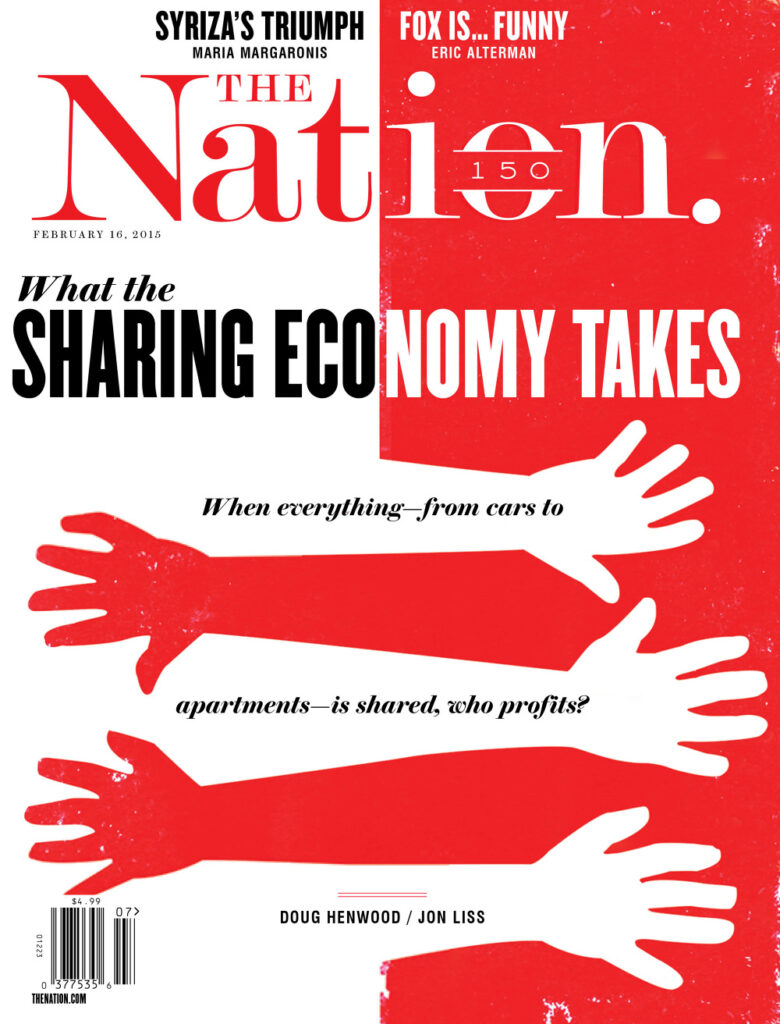 For Don Guttenplan, being named editor of the oldest continuously published print magazine in the country is not something to take lightly.
For Don Guttenplan, being named editor of the oldest continuously published print magazine in the country is not something to take lightly.
“To have this platform at this time in our country’s history and to have a platform with the lineage and the leverage of The Nation is both an incredible opportunity and also a heavy responsibility, which does weigh on me and which I take seriously,” Guttenplan told Samir “Mr. Magazine” Husni in a recent interview.
He is firmly aware of The Nation’s legacy and its role in a democratic society, at a time when many people are questioning the future of print journalism.
“We’d entered all of these other platforms and we’re enthusiastic on them and have a great website and we have millions of unique readers, so the magazine’s reach and voice is extensive and that’s terrific, but there were some people who felt that print was over and I definitely didn’t feel that,” Guttenplan explains.
“And one of the things [The Nation] has been over time is a voice for progressive ideas, for ideas that move toward a vision of justice, to try and bend the arc of the universe toward justice, whether it was 40 acres and a mule for freed slaves, literacy training for freed slaves, or whether it was workers’ rights,” he continues. “And one of the earlier editors of The Nation was one of the founders of the NAACP. So The Nation has been a voice for progress for a long time. And I think having an awareness of that is important.”
Print journalism plays an important role in our country, as Guttenplan says: “I don’t think you can have a democracy without a functioning press. I think it’s absolutely crucial and we are actually blessed in America with a really good press, particularly with what were our legacy print publications, such as The New York Times, for example.”
Digital content certainly has an important place in their publishing, due in large part to the physical realities of curated print, but there is a difference in the content they publish digitally versus in the magazine, and he urges readers to understand the two.
“We certainly don’t have room in print for everything that we’d like to say, which is one of the reasons why it’s wonderful that we have a website. And it’s so active and so full of interest,” he says. “But it’s still the question of figuring out what to pay attention to; picking your fights; picking your issues, and focus.
“One of the experiences you have editing a magazine that everybody knows about but not everybody reads, is you’re meeting people who say they used to read The Nation or they used to subscribe to The Nation,” Guttenplan continues. “And my message to those people is take another look. We have a new editor; we have new energy; we have I think a really important understanding of our responsibility and we are going to work very hard to live up to that responsibility. I say that not as a sense of duty, but I feel like our responsibility is not just to parse out what’s happening politically and provide cogent and trenchant analysis, which I think we do every week, but also to give people sources of delight and encouragement and energy.”
Regardless of where you fall on the political spectrum, there can be no doubt in anyone’s mind that a free press, and in particular printed journalism, has an enormous impact on the viability of our future as the United States. And print journalism, with its ability to dive deep into the story behind the story, is the perfect medium in which we can all raise our level of understanding of the highly complex issues that both divide and unite us.
